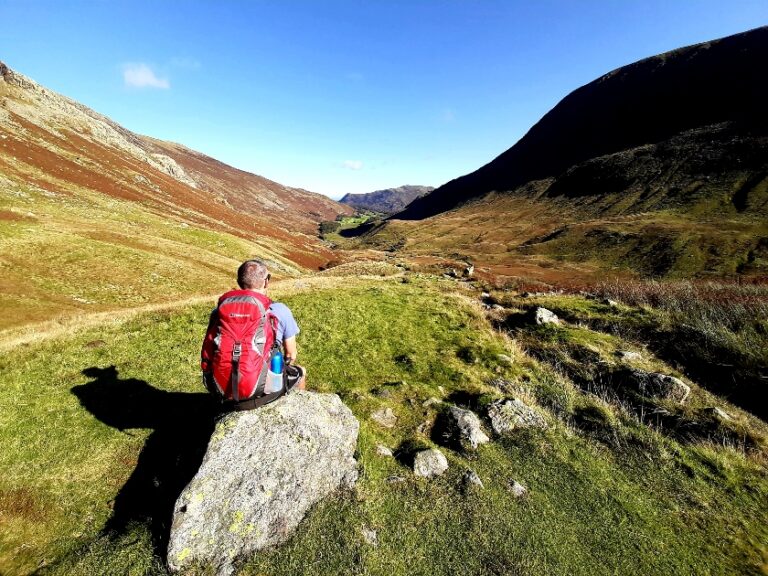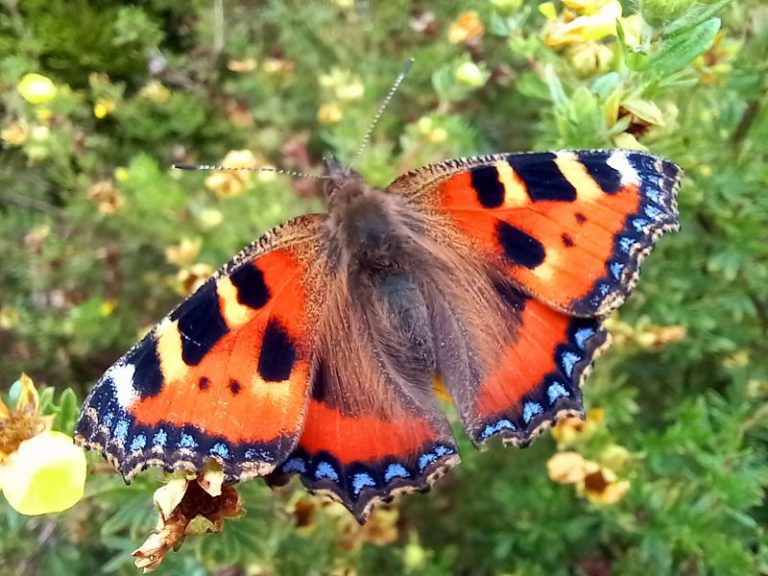Do you ever feel so lacking in energy that you feel you could sleep for a month, and yet in sleeping more you actually feel exhausted rather than refreshed?
We know we need to take time in our busy lives to rest and yet often we merely equate ‘rest’ with ‘sleep’. But the two are not the same at all. The busyness of our lives; constant demands on our time through work or family, digital technology overload, the pressure to be perfect, to live our ‘best lives’ (and to be seen to be doing so) the merry-go-round of striving and getting and achieving is EXHAUSTING.
No wonder we need to take a rest!

But the true power of rest comes when we recognise that it’s about more than sleep – and we act on it. Then it becomes, not about merely rest, but about restoration.
The fascinating fact is that there are actually seven types of rest we ought to be taking.
And doing so through deepening our connection with nature can reap even greater restorative benefits. Let’s take a look at them, and how you can incorporate them, to create a life that is more rested and reconnected:
Physical
Physical rest is obviously what we need when our bodies are tired, and our energy is depleted through physical activity. It is often passive – sleeping, napping or sitting – but it can also be active, using restorative activities such as yoga, stretching or massage.
Add nature connectedness: Try doing early morning stretches, or a relaxing yoga session outdoors at any time. Early in the morning you’ll be resetting your body’s circadian rhythm for better sleep. And natural daylight will top up your levels of Vitamin D which strengthens bones.
Mental
Who recognises that befuddled or jangly, brain fog feeling? You can’t focus on a task, you’re irritable or forgetful. Often it’s because we’re multi-tasking, flitting from one thing to another. Scheduling a 5-minute break every couple of hours helps with attention restoration.
Add nature connectedness: Looking at nature is scientifically proven to restore mental fatigue. So, take a 5-minute break out in the garden or look out through the window and focus on the greenery.
Emotional
If someone asks, “how are you?” do you most often reply “I’m fine thanks” even when you’re far from it? Not being emotionally honest about how we feel is draining. Being able to be honest enables you to let go of tension.
Add nature connectedness: Take a walk amongst the therapeutic sights and sounds of nature with a friend you can talk honestly with. Walking and talking outdoors is now a recognised and valuable form of therapy.
Social
Whether you’re an extrovert or an introvert, being sociable can be exhausting and it’s great to take time out on our own. But social rest is also about removing yourself from those people who ‘drain’ you (you know who they are!) and spending time with people who leave you feeling uplifted and refreshed.
Add nature connectedness: Go for a lone walk in the countryside. Breathe deeply and tune in to the sights, sound and smells of nature all around you. Or go with a joyful, positive, supportive friend on a bike ride, walk or wild swim.
Sensory
Mobile phones pinging notifications, an avalanche of emails flooding your computer screen, loud music blaring, Zoom meetings, glaring office lights – all these things lead to sensory overload. Unplugging from overwhelming stimulation is a must.
Add nature connectedness: The sounds of nature are scientifically proven to have a restorative effect on human brains. Take a regular break each day to tune in to birdsong, the wind in the trees, trickling water or a babbling stream.
Creative
If your work involves thinking creatively, brainstorming, solving problems, finding solutions, it can be easy to become depleted of energy and ideas. Giving your creative brain a rest can reset the imagination.
Add nature connectedness: The natural world is filled with the most wondrous creations. Taking time out to look closely at the colours, patterns and textures of trees, flowers, plants and creatures reawakens your sense of awe, wonder and curiosity at the world.
Spiritual
As humans, we have a deep need to feel connected beyond the physical world, to feel a deep sense of belonging, acceptance and purpose. To gain spiritual rest, we don’t need to ‘add nature connectedness’ because we are a part of the natural world – a world which is greater than our individual selves – and it is a part of us.
We simply need to recognise that fact – nature \ ˈnā-chər – the physical world and everything in it such as plants, animals, mountains, seas, stars, weather [and we humans] connectedness /kəˈnɛktɪdnəs/ a feeling of belonging or affinity.
So next time you’re feeling run-down or burnt-out instead of taking to your bed, take a step outside at nature’s pace, to reconnect, rewild and restore.


